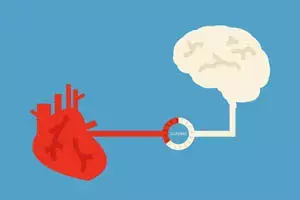- Home
- Medical news & Guidelines
- Anesthesiology
- Cardiology and CTVS
- Critical Care
- Dentistry
- Dermatology
- Diabetes and Endocrinology
- ENT
- Gastroenterology
- Medicine
- Nephrology
- Neurology
- Obstretics-Gynaecology
- Oncology
- Ophthalmology
- Orthopaedics
- Pediatrics-Neonatology
- Psychiatry
- Pulmonology
- Radiology
- Surgery
- Urology
- Laboratory Medicine
- Diet
- Nursing
- Paramedical
- Physiotherapy
- Health news
- Fact Check
- Bone Health Fact Check
- Brain Health Fact Check
- Cancer Related Fact Check
- Child Care Fact Check
- Dental and oral health fact check
- Diabetes and metabolic health fact check
- Diet and Nutrition Fact Check
- Eye and ENT Care Fact Check
- Fitness fact check
- Gut health fact check
- Heart health fact check
- Kidney health fact check
- Medical education fact check
- Men's health fact check
- Respiratory fact check
- Skin and hair care fact check
- Vaccine and Immunization fact check
- Women's health fact check
- AYUSH
- State News
- Andaman and Nicobar Islands
- Andhra Pradesh
- Arunachal Pradesh
- Assam
- Bihar
- Chandigarh
- Chattisgarh
- Dadra and Nagar Haveli
- Daman and Diu
- Delhi
- Goa
- Gujarat
- Haryana
- Himachal Pradesh
- Jammu & Kashmir
- Jharkhand
- Karnataka
- Kerala
- Ladakh
- Lakshadweep
- Madhya Pradesh
- Maharashtra
- Manipur
- Meghalaya
- Mizoram
- Nagaland
- Odisha
- Puducherry
- Punjab
- Rajasthan
- Sikkim
- Tamil Nadu
- Telangana
- Tripura
- Uttar Pradesh
- Uttrakhand
- West Bengal
- Medical Education
- Industry
Mental Stress Might Worsen Cardiac Health In Patients With Stable CHD

There is growing evidence of a link between psychological stress and the risk of Coronary Heart Disease (CHD). A recent study finds compelling evidence demonstrating a strong association between mental stress ischemia and the risk of future cardiac events and mortality among individuals with stable CHD. The study findings were published in JAMA on November 09, 2021.
Mental stress-induced myocardial ischemia is a recognized phenomenon in patients with coronary heart disease (CHD), but its clinical significance in the contemporary clinical era has not been investigated. Therefore, Dr Viola Vaccarino, MD, PhD and her team conducted a study to compare the association of mental stress-induced or conventional stress-induced ischemia with adverse cardiovascular events in patients with CHD.
The researchers conducted a pooled analysis of 2 prospective cohort studies of patients with stable CHD from a university-based hospital network in Atlanta, Georgia: the Mental Stress Ischemia Prognosis Study (MIPS, n=618) and the Myocardial Infarction and Mental Stress Study 2 (MIMS2, n=300). The myocardial ischemia was proved by a standardized mental stress test (public speaking task) and with a conventional (exercise or pharmacological) stress test. The researchers also evaluated single-photon emission computed tomography. The primary outcome assessed was a composite of cardiovascular death or first or recurrent nonfatal myocardial infarction. They also evaluated the hospitalizations rate for heart failure as a secondary outcome.
Key Findings of the Study Were:
- Among 918 patients, 147 patients (16%) had mental stress-induced ischemia, 281 (31%) conventional stress ischemia, and 96 (10%) had both.
- The researchers noted that the primary endpoint occurred in 156 participants over a 5-year median follow-up. The pooled event rate was 6.9 per 100 patient-years and 2.6 per 100 patient-years among patients with and without mental stress-induced ischemia.
- They observed that the patients with no ischemia (event rate, 2.3 per 100 patient-years) had a significantly increased risk (event rate, 4.8 per 100 patient-years; HR, 2.0) when compared with the patients with mental stress-induced ischemia alone.
- They found similar findings in patients with both mental stress ischemia and conventional stress ischemia (event rate, 8.1 per 100 patient-years; HR, 3.8).
- They also noted that patients with conventional stress ischemia alone did not have a significantly increased risk (event rate, 3.1 per 100 patient-years; HR, 1.4).
- They further found that patients with both mental stress ischemia and conventional stress ischemia had an elevated risk compared with patients with conventional stress ischemia alone (HR, 2.7).
- They observed the secondary endpoint in 319 participants. The event rate was 12.6 per 100 patient-years and 5.6 per 100 patient-years for patients with and without mental stress-induced ischemia (adjusted HR, 2.0).
The authors concluded, "Among patients with stable coronary heart disease, the presence of mental stress-induced ischemia, compared with no mental stress-induced ischemia, was significantly associated with an increased risk of cardiovascular death or nonfatal myocardial infarction. "
They further added, "Although these findings may provide insights into mechanisms of myocardial ischemia, further research is needed to assess whether testing for mental stress-induced ischemia has clinical value."
For further information:
Medical Dialogues Bureau consists of a team of passionate medical/scientific writers, led by doctors and healthcare researchers. Our team efforts to bring you updated and timely news about the important happenings of the medical and healthcare sector. Our editorial team can be reached at editorial@medicaldialogues.in.
Dr Kamal Kant Kohli-MBBS, DTCD- a chest specialist with more than 30 years of practice and a flair for writing clinical articles, Dr Kamal Kant Kohli joined Medical Dialogues as a Chief Editor of Medical News. Besides writing articles, as an editor, he proofreads and verifies all the medical content published on Medical Dialogues including those coming from journals, studies,medical conferences,guidelines etc. Email: drkohli@medicaldialogues.in. Contact no. 011-43720751


